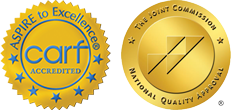Introduction
Maintaining good mental health is an essential component of substance abuse healing. Despite the known connection between mental health and substance abuse, comprehensive self-care strategies are often overlooked during the process of recovering from addiction. This oversight can hinder successful recovery, exacerbate mental health issues, and heighten the risk of relapse. Therefore, an integrated approach to mental health and substance abuse healing is crucial for long-term success.
The Connection between Mental Health and Substance Abuse
The relationship between mental health disorders and substance abuse is well-established, with research indicating that people with mental health disorders are more likely to experience a substance use disorder (SUD) than those without. According to the Substance Abuse and Mental Health Services Administration (SAMHSA), nearly 9 million adults have co-occurring mental health and substance use disorders in the United States (Source: SAMHSA). This figure highlights the importance of recognizing and addressing mental health issues in tandem with substance abuse healing.
Additionally, mental health issues can arise during substance abuse recovery. Withdrawal symptoms, cravings, stress, and lifestyle changes can all contribute to the development of depression, anxiety, or other mental health disorders. Thus, it is crucial to promote self-care and prioritize mental wellness during this time.
Self-Care and Mental Health Strategies during Substance Abuse Healing
Addressing mental health issues during substance abuse recovery can significantly improve an individual’s overall well-being and chances of long-term success. Here are five self-care strategies that can help prioritize mental health throughout the healing process.
1. Engage in Therapy and Counseling Services
Therapy plays a significant role in substance abuse healing and mental health support. A trained therapist or counselor can help individuals develop coping strategies, establish healthy boundaries, and identify and address any underlying mental health disorders. Cognitive-behavioral therapy, psychoeducation, and group therapy are all beneficial approaches that can foster a stronger understanding of the connection between mental health and substance abuse.
2. Develop a Healthy Routine
Creating a consistent daily routine can provide structure and predictability during the often-chaotic recovery process. A well-balanced routine that incorporates proper sleep, nutrition, exercise, and relaxation can significantly impact mental health and overall well-being. Research has shown that regular physical activity is particularly beneficial in alleviating depressive symptoms and reducing drug cravings among individuals with SUDs (Source: NCBI).
Do you have a loved one struggling with addiction?
We know how hard that can be. Give us a call to find out what options you have.
3. Build a Support Network
Connecting with others who deeply understand the challenges of substance abuse recovery can provide tremendous mental health benefits. Support groups, such as Alcoholics Anonymous or Narcotics Anonymous, offer a safe space for individuals to share their experiences, learn from others, and foster a sense of belonging and accountability. Additionally, seeking support from friends, family, and mental health professionals can further bolster one’s ability to cope with the stresses associated with recovery.
4. Practice Mindfulness and Stress Reduction Techniques
Stress is a major trigger for substance abuse, which makes stress reduction a crucial component of mental health maintenance during recovery. Implementing mindfulness practices, such as meditation, yoga, or deep breathing exercises, can help individuals better manage stress, reduce anxiety, and remain present throughout their healing journey. Studies have shown that mindfulness-based interventions (MBIs) can effectively promote abstinence, reduce substance-related problems, and improve mental health (Source: NCBI).
5. Set Realistic Goals and Celebrate Progress
Setting achievable goals for substance abuse healing and mental health improvements can foster a sense of accomplishment and motivate continued progress. It’s essential to recognize the small victories in recovery and celebrate them as part of a journey towards a healthier, happier life.
Conclusion
Integrating mental health care into substance abuse healing is crucial for long-lasting success. By engaging in therapy, creating a healthy routine, building a solid support network, practicing mindfulness, and setting achievable goals, individuals can prioritize their mental well-being during their recovery journey. This comprehensive approach can lead to better overall mental health, improved quality of life, and a decreased risk of relapse.




